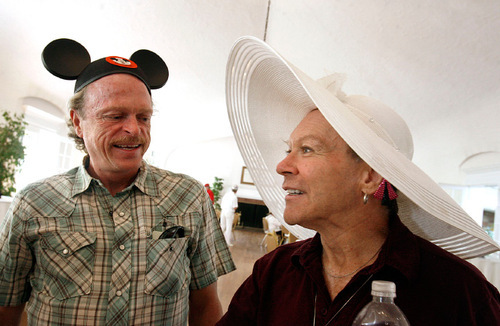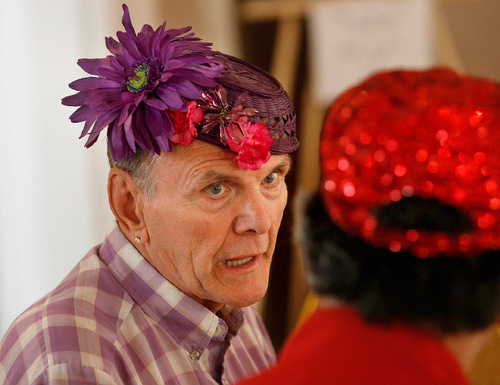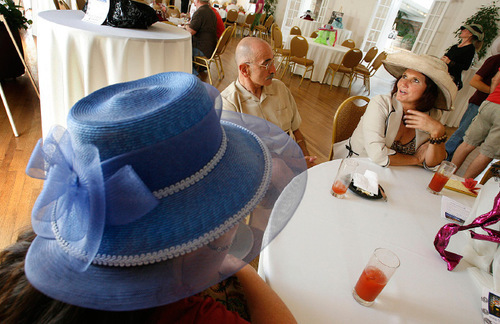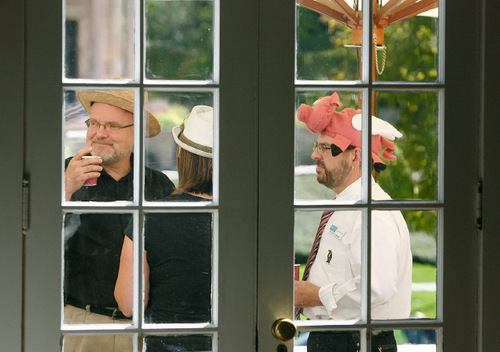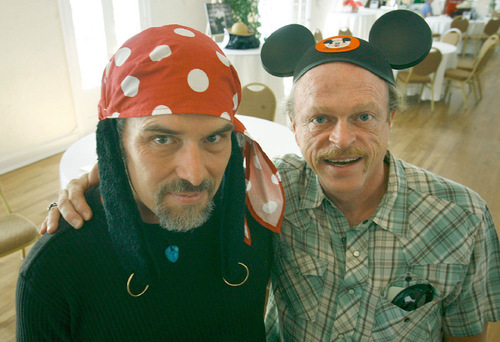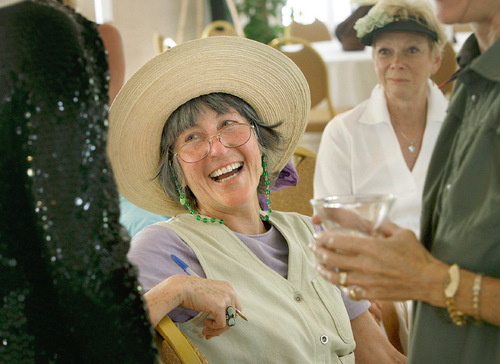This is an archived article that was published on sltrib.com in 2010, and information in the article may be outdated. It is provided only for personal research purposes and may not be reprinted.
Brad Case, 51, wonders about who will be there to take care of his partner of 21 years when he is gone. He takes comfort in knowing his nieces and nephews consider David Barker to be their uncle, too.
Single and 63, Ingrid Davis, a lesbian, helps care for her aging parents, but she has stowed away money to pay for her own long-term care when she needs it.
Lesbian, gay, bisexual and transgender (LGBT) adults grapple with the same questions about aging as everyone else. But they often face additional challenges, according to a report released this year by LGBT advocacy groups, the American Society on Aging, the National Senior Citizens Law Center and the Center for American Progress.
Nationwide, there are an estimated 1.5 million adults over the age of 65 who identify themselves as lesbian, gay or bisexual. And that number is expected to double by 2030, noted the report, "Improving the Lives of LGBT Elders."
In Utah, Salt Lake County Aging Services and the Utah Pride Center have been working together to raise awareness and address the needs of LGBT elders.
"Aging is different for them," said David Turner, manager of Salt Lake County senior centers.
In a nation where 80 percent of long-term care is provided by family members, older LGBT adults are more likely to be single, childless and estranged from their immediate families, the report found. They also face social stigma and often hide their LGBT identities when they enter assisted-living facilities and senior centers. Same-sex couples don't get the financial benefits, such as Social Security payouts for spouses and survivors, that married heterosexual couples do.
"We have real issues and real concerns," Valerie Larabee, director of the Utah Pride Center, recently told a gathering of LGBT adults, age 50-plus. "There are many of us who don't have that homegrown support system following us into the golden years."
Larabee was speaking at a brunch for SAGE (Services and Advocacy for Gay, Lesbian, Bisexual and Transgender Elders). The pride center launched a Utah chapter of the national group a year ago. The garden party, held at the Memorial House in Salt Lake City, had a "Do you like my hat?" theme. Attendees, wearing Mickey Mouse ears and flowery caps, mingled over mimosas and quiche.
"Too often elders are just left to sit in the corner. I don't want that to happen to me," said Davis, who wore a white Western hat at the party. "And I don't want it to happen to other people. That's why I want to be engaged in senior activities."
Providing social activities is a big part of what SAGE does. It's a way to prevent isolation among older LGBT adults and bolster their social networks. The Utah chapter and Salt Lake County Aging Services recently launched a once-a-month LGBT social hour at the Tenth East Senior Center in Salt Lake City.
SAGE also arranges nights out at the theater and informational workshops on such topics as estate planning or caring for an older loved one.
"It's creating a bigger community among us," said Case, who noted it's helpful to share concerns and work on problem-solving with friends. "We are creating our own safety net."
Case is seven years older than Barker, the partner he considers a husband. The couple have painstakingly crafted medical directives and wills to ensure they can make medical decisions for one another in an emergency and inherit one another's property. Those are safeguards that married couples often don't need.
Contrary to stereotypes that gay and lesbian couples are more affluent than their heterosexual peers, they are more likely to be poor in older age, according to the LGBT elders study. While 4.6 percent of senior straight couples live below the poverty line, 4.9 percent of gay couples and 9.1 percent of lesbian couples do. The disparity for lesbian couples is thought to be greater because of the historic gender gap in pay and because same-sex couples are not eligible for spousal Social Security benefits.
Not receiving spousal benefits can cost a couple up to $14,076 a year, if one partner was the sole breadwinner. Same-sex couples also do not receive survivor benefits. A lesbian who is financially dependent on a partner stands to miss out on up to $28,152 a year in Social Security benefits when her partner dies, the study noted.
Many LGBT elders may end up alone in long-term care centers. SAGE Utah is working to develop an outreach program to train staffers and certify facilities as LGBT-friendly.
Often, care providers don't know which residents are LGBT, said Charise Jensen, who works for Salt Lake County's long-term-care ombudsman program.
A few years ago, Jensen was surprised when an assisted-living resident, who had not told others that she was a lesbian, confided in Jensen.
"She said she felt isolated. She had no family. They kind of wrote her off once she came out about who she was," Jensen said. "It made me realize that there are other residents out there who are dealing with the same issue. … It's just not common knowledge."
About SAGE
What • Services and Advocacy for Gay, Lesbian, Bisexual and Transgender Elders. The Utah Pride Center launched a Utah chapter last year.
Who • LGBT adults age 50 and older and their supporters.
Events • The Utah chapter hosts workshops, parties and service projects. In addition, there is SAGE social hour on the third Tuesday of each month, 3-4 p.m., at Tenth East Senior Center, 237 S. 1000 East, Salt Lake City.
Information • http://tinyurl.com/25558ym.


